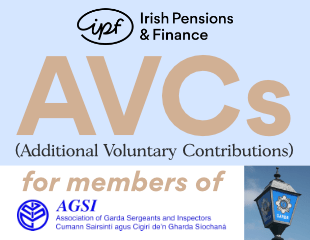Press Release
European Confederation of Police (EuroCOP) –v- Ireland
Complaint No. 83/2012
Download the full text of the response of the Irish Government on the findings of the European Committee of Social Rights regarding Complaint 83/2012 taken successfully by AGSI at the link below.
European Confederation of Police(1)
REPORT TO THE COMMITTEE OF MINISTERS OF THE COUNCIL OF EUROPE
The Minister for Justice and Equality, Frances Fitzgerald TD, today formally submitted a response to the Council of Europe on the findings of the European Committee of Social Rights that current arrangements for industrial relations in the Garda Síochána are not in compliance with aspects of the European Social Charter. The response is attached for information.
In a non-binding ruling, the Committee found that Ireland was not in compliance with:
1. Article 5 of the Charter (the right to organise) on grounds of the prohibition against police representative associations from joining national employees’ organisations;
2. Article 6.2 of the Charter (the right to bargain collectively) on grounds of restricted access of police representative associations into pay agreement discussions; and
3. Article 6.4 of the Charter on grounds of the prohibition of the right to strike of members of the police.
The Committee has found that there was no violation of Article 5 of the Charter concerning the prohibition of police from establishing trade unions as it was established that the police representative associations enjoy the basic trade union rights within the meaning of Article 5 of the Charter.
Speaking after the response (above) was delivered in Strasbourg, the Minster said that “I welcome the opportunity to make a formal response on the report of the European Committee of Social Rights on these important matters. As I have indicated to the Council of Europe, there will be engagement with all the relevant parties to seek solutions to these issues which respect the Charter. I expect that the review of the Garda Síochána under the Haddington Road Agreement, which is currently underway and which is examining mechanisms for the future resolution of matters relating to industrial relations, will have regard to these issues.
I do note that the finding in relation to a right to strike was based on a narrow margin, with strong dissenting views, and it does raise significant and sensitive issues not only for Ireland, where of course the Garda Síochána delivers both the policing service and the security service, but for other Member States. These issues will require further careful and detailed consideration and consultation, and the Council of Europe will be kept advised of developments.”
ENDS.







